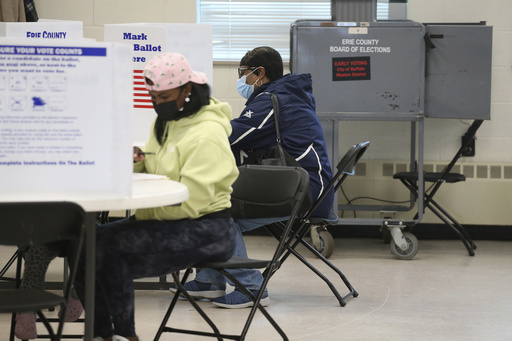A recent ruling by a state judge has overturned a law that aimed to move numerous town and county elections in New York to even-numbered years, aligning them with state and federal contests. This decision is considered a victory for Republicans, who argued that the law represented a partisan strategy by Democrats to gain an electoral advantage.
The legislation, which was passed last year by the Democrat-controlled state Legislature, was intended to hold elections for positions like town supervisor and county executive during even-numbered years. Lawmakers supporting the bill claimed that this shift would reduce voter confusion and boost turnout in local elections. However, Republicans criticized the move, contending it was a tactic to shift local elections into cycles with higher turnout, such as presidential election years, which they believed would be to the benefit of the Democratic Party.
Following the new law’s implementation, several Republican officials filed a lawsuit against the state, culminating in a ruling from state Supreme Court Justice Gerard Neri in Syracuse. In his decision, Neri stated that the law breached the state constitution, emphasizing the rights of local governments to regulate their own electoral processes.
Additionally, the judge clarified that the law would not impact elections in New York City, where city electoral cycles and certain local offices such as county district attorney are conducted in odd-numbered years as per the state constitution. Neri raised concerns regarding whether the law would ensure equal protections as mandated under federal law, questioning the notion of whether voters in urban areas might be less confused by odd-year elections compared to those in Upstate and Long Island regions.
The attorney general’s office is currently assessing the implications of this ruling. State Senator James Skoufis, a proponent of the legislation, expressed confidence that the decision would be reversed on appeal. He indicated in a statement that this case was expected to be contested, anticipating that a more impartial judicial panel would uphold the law’s constitutionality. Skoufis also criticized the plaintiffs for allegedly squandering local tax resources on efforts to maintain lower electoral turnout.
State Republican Chairman Ed Cox described the ruling as a triumph for advocates of local elections. He argued that the proposed changes to the established electoral laws were profoundly misguided and represented a clear attempt by Democrats to dominate local governance and silence discussions pertinent to local matters amid a tide of federal and state influence.


